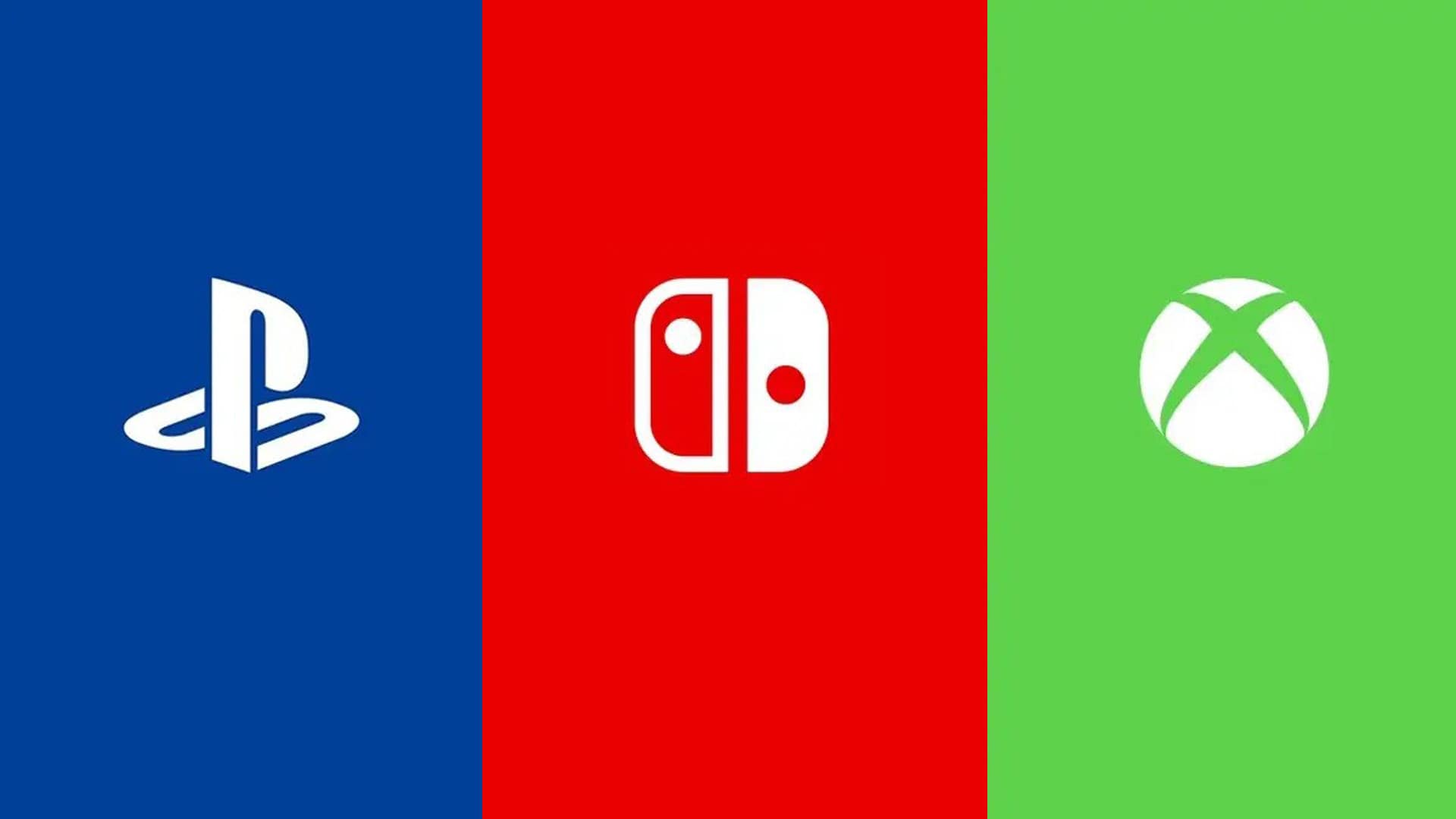2024 Global Game Industry Report: Trends and Market Insights
The 2024 Global Game Industry Report cuts through the noise to deliver essential insights about an industry on a steep upward trajectory, poised to hit $492.5B by 2031. Focused on data-driven analysis, this report examines the market’s expansion, dissecting trends in mobile, cloud, and PC gaming, while highlighting technology’s transformative role. Unveil the key players and segments influencing this remarkable growth, and understand the regional market variations at play.
Key Takeaways
- The global gaming, video game and games market is projected to grow significantly, reaching approximately $492.5B by 2031, driven by technological advancements, increased internet penetration, and the rise of mobile and PC gaming.
- The Asia Pacific region dominates the global gaming industry, with China, Japan, and South Korea leading the growth, while cloud gaming services and immersive technologies like VR/AR are transforming the gaming experience.
- Major industry challenges include regulatory scrutiny on practices like loot boxes and the management of intellectual property rights amid the rise of generative AI, while opportunities exist in technological advancements and emerging markets.
Disclaimer: The links provided herein are affiliate links. If you choose to use them, I may earn a commission from the platform owner, at no extra cost to you. This helps support my work and allows me to continue to provide valuable content. Thank you!
Global Gaming Market Overview

A spectacular transformation has taken place in the gaming industry, with the global gaming market’s projection showing a leap from $230.79B in 2023 to an impressive $492.5B by 2031. This remarkable growth trajectory is fueled by a potent blend of technological advancements, increasing internet penetration, and an accelerating shift towards mobile and PC gaming.
Currently, the gaming market resembles an intricate tapestry with diverse threads. Each thread represents a unique segment that contributes to the industry’s vibrant growth. Some of these segments include:
- Mobile gaming
- Console gaming
- PC gaming
- Virtual reality gaming
- Cloud gaming
The video gaming industry is a dynamic ecosystem poised for significant gaming industry growth.
Mobile Games and Their Impact on the Industry

The advent of smartphones ushered in the era of mobile gaming, which swiftly rose to dominance in the gaming industry. With over 51% market share, mobile gaming has turned smartphones into portable gaming consoles that captivate players of all ages. The average mobile gamer is 36.3 years old, while 86% of Gen Z play games on mobile devices, illustrating the universal appeal of mobile gaming.
This phenomenal growth of the mobile gaming market is a testament to the power of convenience and accessibility. The ability to play anytime, anywhere, has transformed mobile games from a mere pastime into a mainstream form of entertainment. As a result, mobile gaming is a significant contributor to the gaming industry’s growth, shaping the future of the gaming ecosystem.
Cloud Gaming Services: Revolutionizing the Gaming Experience

Cloud gaming services, a revolutionary concept, have emerged from the convergence of cloud computing and gaming. These services are poised to redefine the gaming experience by eliminating the need for expensive hardware and cumbersome downloads, providing instant gameplay on any device with high bandwidth network connectivity.
Accessible from a variety of devices, including smartphones, TVs, and PCs, cloud gaming platforms allow users to switch between devices seamlessly, enhancing the gaming experience. The global cloud gaming market is experiencing rapid userbase growth, primarily driven by its affordable access model, which continues to attract a large number of gamers.
Virtual Reality and Augmented Reality: Enhancing Immersive Experiences
No longer confined to the realm of science fiction, Virtual Reality (VR) and Augmented Reality (AR) technologies have found their place in gaming. They have transcended into the realm of gaming, bringing immersive experiences to the next level. From VR headsets like Oculus Rift and HTC Vive that plunge players into virtual realms, to AR games like Pokemon Go and Minecraft Earth that blend digital content with the real world, VR and AR have become game-changers in the gaming industry.
Furthermore, these advancements in AR and VR technologies are enhancing the interactive capabilities of gaming environments, making the gaming experience more immersive and contributing to the overall growth of the gaming market. The technological improvements have led to an increased number of players on online gaming platforms, thus elevating player counts.
Regional Analysis of the Gaming Market
The global gaming market paints a diverse geographical picture, with different regions contributing uniquely to the industry’s growth. The Asia Pacific region, in particular, holds the most significant share in the gaming market, followed by North America and Europe.
Each region boasts a distinctive gaming landscape characterized by unique trends, player behavior, and market dynamics. Whether it’s the dominance of Asia Pacific, the innovative hub of North America, or the diversity of Europe, each region adds a unique flavor to the global gaming industry’s dynamic cocktail.
Asia Pacific: The Dominant Force in the Global Gaming Market
Asia Pacific has emerged as the powerhouse of the global gaming market, accounting for nearly half of it in 2021, with a market size that reached $99 billion. This region, led by key countries like China, Japan, and South Korea, continues to grow at an impressive compound annual growth rate (CAGR) of 10%.
The dominance of the Asia Pacific in the online gaming market, where it holds more than a 47.67% share, illustrates the region’s strong influence on the gaming industry. The immense popularity of gaming in this region is a testament to the vibrant gaming culture and technological advancements that the Asia Pacific offers.
North America: A Hub for Innovation and Investment
North America is a key player in the global gaming market, commanding a 24.0% revenue share in 2022 and hosting a significant consumer base with 65% of Americans playing video games. This region is recognized as a hub for innovation and investment, housing technology giants like:
- Amazon Web Services
- Apple
- Microsoft
- NVIDIA
These companies significantly contribute to the region’s gaming market growth.
Furthermore, the region is witnessing a surge in gaming startups taking the eSports sector by storm, exemplified by Canadian gaming startup Phoenix Rising Studio, creator of ‘The Forge Arena’. This trend showcases the region’s innovative spirit and its potential to shape the future of the gaming industry.
Europe: A Growing Market with Diverse Opportunities
Europe’s gaming market is a rising star, projected to grow to a value of approximately $73.27 billion by 2024. This region is expected to expand at an impressive annual growth rate of 7.54% from 2024 to 2029, reaching around $105.40 billion by 2029.
The number of gaming users in Europe is estimated to reach 309.3 million by 2029, and user penetration in the European gaming market is forecasted to increase from 32.0% in 2024 to 36.7% by 2029. These numbers underscore Europe’s growing significance in the global gaming industry and the diverse opportunities it presents for game developers and players alike.
Key Players in the Gaming Industry

Titans like Nintendo, Sony Corporation, Microsoft Corporation, and Activision Blizzard dominate the gaming industry, shaping the market through their strategies and developments. These companies, among others, play a pivotal role in shaping the gaming market, driving innovation, and setting trends that define the industry’s landscape.
These leading gaming companies not only contribute to the overall market growth but also influence the gaming experience for millions of players worldwide. Whether it’s pioneering console gaming, powering PC and console gaming, or creating blockbuster franchises, these gaming giants are the architects of the gaming world as we know it:
- Nintendo
- Sony Interactive Entertainment
- Microsoft
- Electronic Arts
- Activision Blizzard
- Ubisoft
- Take-Two Interactive
- Epic Games
- Valve Corporation
- Square Enix
Sony Corporation: Pioneering Console Gaming
Sony Corporation has etched its name in the annals of the gaming industry as a pioneering force in console gaming. Known for its significant contributions to this segment, Sony has developed a strong reputation in the gaming industry.
From its iconic PlayStation consoles to its innovative gaming technologies, Sony has consistently pushed the boundaries of what’s possible in console gaming. Through its relentless pursuit of innovation and excellence, Sony Corporation continues to inspire and shape the future of console gaming.
Microsoft Corporation: Powering PC and Console Gaming
Microsoft Corporation is another titan that has left an indelible mark on the gaming industry. From producing the acclaimed Xbox gaming consoles to spearheading advancements in PC gaming, Microsoft has been a driving force in shaping the realms of PC and console gaming.
In recent years, Microsoft has further consolidated its operations, including Xbox hardware and game studios, into one division, marking significant expansions through acquisitions like Bethesda Softworks and Activision Blizzard. This strategic shift towards a service-oriented approach with the Xbox Game Pass emphasizes Microsoft’s commitment to delivering a vast library of games, setting the stage for the future of gaming.
Activision Blizzard: Creating Blockbuster Franchises
Activision Blizzard has carved out a unique niche in the gaming industry, creating blockbuster franchises that have become household names. Some of their most popular games include:
- Call of Duty
- World of Warcraft
- Overwatch
- Diablo
Activision Blizzard’s portfolio is a testament to their creative prowess and understanding of the gaming market.
These iconic franchises have not only garnered massive player bases but have also fueled the growth of the eSports sector, with leagues organized around these games drawing millions of viewers worldwide. As a creator of blockbuster franchises, Activision Blizzard continues to command a significant presence in the gaming industry.
Gaming Market Segments: Trends and Projections
Far from being a monolithic entity, the gaming market is a conglomerate of diverse segments, each carrying its unique trends and projections. From online gaming and console gaming to PC gaming, each segment plays a crucial role in the overall growth of the gaming industry. To better understand these trends and projections, a comprehensive gaming market report is essential for industry professionals.
The evolution of these market segments is driven by technological advancements, improvements in network connectivity, and the changing preferences of gamers around the world. As we delve into these segments, we’ll uncover the trends shaping them and the projections that hint at what the future holds.
Online Games: The Power of Connectivity
Online gaming has surged in popularity, with its market projected to grow from $96B in 2023 to an astounding $276B by 2033. This growth is fueled by rising internet penetration and the popularity of multiplayer games and esports events.
The competitive and social elements of multiplayer and massively multiplayer online games have drawn a significant player base, contributing to the overwhelming popularity of online gaming. The rising popularity of esports, illustrated by the organization of professional leagues like the Call of Duty League and the Overwatch League, underlines the surging interest and investment in this sector.
Console Games: Innovations Driving Growth
Console gaming represents a significant market segment, with its growth propelled by advancements in hardware, graphics, and immersive technologies such as AR/VR. Despite the rise of mobile and online gaming, console gaming continues to hold a significant share of the market, even in the realm of video gaming.
These technological improvements are leading to more sophisticated gaming experiences, presenting opportunities for market growth. As consoles become more powerful and capable of delivering high-quality, immersive gaming experiences, console gaming continues to captivate gamers worldwide.
PC Gaming: A Resilient Market Segment
PC gaming continues to be a significant component of the gaming industry, contributing to its overall market growth. Despite the rise of mobile and console gaming, the unique gaming experiences offered by PCs, such as powerful hardware, customizable systems, and expansive game libraries, help maintain their appeal to gamers.
The resilience of the PC gaming market segment underscores its pivotal role in the overall gaming market. As technology continues to evolve, PC gaming remains a dynamic segment, persistently adapting and evolving, ensuring its relevance and growth in the gaming industry.
Challenges and Opportunities in the Gaming Industry
Like any other industry, the gaming industry faces its own set of challenges and opportunities. From regulatory complexities to intellectual property rights, the gaming industry navigates a labyrinth of challenges. However, with these challenges come opportunities for growth, driven by technological advancements and emerging markets.
In the face of these challenges and opportunities, the gaming industry continues to evolve, adapt, and grow. It is this resilience and adaptability that have propelled the industry to new heights, shaping a vibrant and dynamic gaming landscape.
Regulatory Challenges: Loot Boxes and Intellectual Property Rights
Regulatory challenges pose a significant hurdle for the gaming industry. Practices such as loot boxes are increasingly coming under government and regulatory body scrutiny due to their potential links to gambling behavior, addiction, and deceptive consumer practices.
Additionally, the rising use of generative AI in game development presents complex challenges to maintaining intellectual property rights. Legal issues arise as AI-generated outputs can closely mimic existing copyrighted materials, increasing the risk of third-party infringement claims.
Navigating these legal complexities is a challenge that the gaming industry must grapple with as it continues to innovate and evolve.
Opportunities for Growth: Technological Advancements and Emerging Markets
On the flip side, the gaming industry offers numerous growth opportunities. One such opportunity is the emergence of generative AI technology, which offers a new way to create detailed and sophisticated gaming assets. This technology has the potential to lower entry barriers for smaller game studios and indie developers, offering new cost-effective structures for asset creation.
Furthermore, the intersection of gaming and technology is being recognized as an important growth opportunity by venture capital firms. By investing in gaming startups and related technologies, these firms are fueling innovation and driving the growth of the gaming industry.
Summary
In conclusion, the global gaming industry is a vibrant, dynamic ecosystem, poised for significant growth. Despite facing challenges such as regulatory complexities and intellectual property rights issues, the industry continues to innovate and evolve, driven by technological advancements and emerging markets. As we move forward, it’s clear that the gaming industry will continue to shape our entertainment landscapes, pushing the boundaries of what’s possible in virtual worlds.
Frequently Asked Questions
What factors are driving the growth of the global gaming market?
Several key factors driving the growth of the global gaming market include substantial revenue contributions from mobile gaming, acceleration in PC gaming, increasing internet penetration, and technological advancements enhancing gaming experiences. These factors are contributing to the significant expansion of the global gaming market.
Why is the Asia Pacific region dominating the gaming market?
The Asia Pacific region dominates the gaming market due to the high popularity of gaming in key countries like China, Japan, and South Korea, which drives significant market demand.
How are VR and AR technologies impacting the gaming industry?
VR and AR technologies are enhancing the gaming experience by providing more interactive and immersive environments, contributing to the overall growth of the gaming market.
What are some of the regulatory challenges facing the gaming industry?
The gaming industry is dealing with regulatory challenges related to loot boxes, micro-transactions and generative AI, which all raise concerns about consumer protection and intellectual property. These issues need careful consideration to ensure fair and ethical practices in the industry.
What opportunities exist for growth in the gaming industry?
To drive growth in the gaming industry, integrating generative AI technology and attracting investment from venture capital firms into gaming startups and related technologies are key opportunities to explore. These strategies can help facilitate growth and innovation in the sector.
Related Gaming News
Nintendo's Next Console: What to Expect After the SwitchUseful Links
Behind the Code: Comprehensive Review of GamesIndustry.BizExploring the Benefits of Activision Blizzard for Gamers
The Best Cloud Gaming Services: A Comprehensive Guide
Experience Smooth Cloud Services: Dive Into GeForceNow.Com
iGaming Industry News: Latest Trends Analysis in Online Gaming
Get the Latest PS5 News for 2023: Games, Rumors, Reviews & More
Explore the Latest Xbox Series X|S Games, News, and Reviews
Mastering Your Play: Top Strategies for Every Valve Game
Nintendo Switch - News, Updates, and Information
PlayStation Gaming Universe in 2023: Reviews, Tips and News
Top Gaming PC Builds: Mastering the Hardware Game in 2024
Top New Consoles of 2024: Which Should You Play Next?
Unlocking Growth: Navigating the Video Game Business Empire
Author Details
Mazen (Mithrie) Turkmani
I have been creating gaming content since August 2013, and went full-time in 2018. Since then, I have published hundreds of gaming news videos and articles. I have had a passion for gaming for more than 30 years!
Ownership and Funding
Mithrie.com is a Gaming News website owned and operated by Mazen Turkmani. I am an independent individual and not part of any company or entity.
Advertising
Mithrie.com does not have any advertising or sponsorships at this time for this website. The website may enable Google Adsense in the future. Mithrie.com is not affiliated with Google or any other news organization.
Use of Automated Content
Mithrie.com uses AI tools such as ChatGPT and Google Gemini to increase the length of articles for further readablity. The news itself is kept accurate by manual review from Mazen Turkmani.
News Selection and Presentation
The news stories on Mithrie.com are selected by me based on their relevance to the gaming community. I strive to present the news in a fair and unbiased manner.

